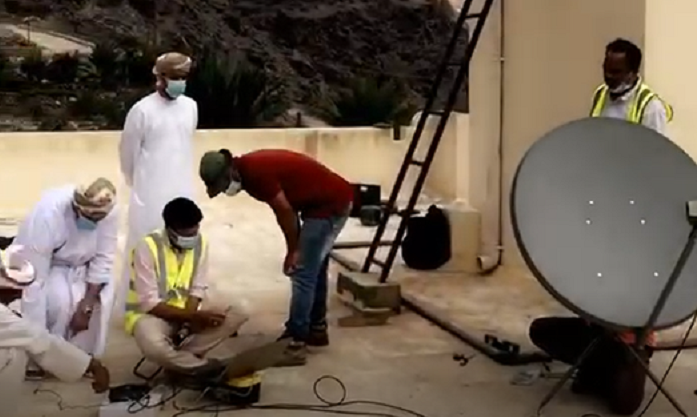
Muscat: Two initiatives launched by Oman to mitigate the effects of the COVID-19 pandemic have been shortlisted in a competition for the best digital services developed to help people overcome the challenges they face.
Projects from a number of sectors, including physical and mental health, economy and trade, education, charity efforts, e-governance, increasing online connectivity in rural areas, and gender equality have been shortlisted for the World Summit on the Information Society Prizes (WSIS) 2021, organised by the International Telecommunications Union (ITU) and the United Nations.
Oman’s entrants to the competition are the Tarassud+ app, which helps monitor COVID patients across the country, and the Afaq (Arabic for ‘horizons’) initiative from the Telecommunications Regulatory Authority (TRA), which provided internet access to a hundreds of schools and villages during the pandemic to help children continue their classes online, after schools were temporarily closed.
Launched in February 2020, shortly after the first cases of coronavirus were announced in Oman, the Tarassud+ app provides daily updates on COVID statistics in the country, has a self-monitoring facility where people can report their symptoms to see if they have the disease, and helps track people under domestic and institutional quarantine.
“It integrates all levels of public and private healthcare providers, and internal and referral laboratories,” said the ITU. “Public health experts and managers, law enforcement agencies, healthcare workers and volunteers, and the public communicate via dedicated web and mobile application systems. These systems are integrated with social media, wearables and sensors, security and privacy technologies, and machine learning and artificial intelligence algorithms.
“They also have early detection alerts on the presence of infective cases within premises, as well as providing a geographical map to detect the location of infection or epidemic clusters, to facilitate comprehensive quarantining and hospitalisation plans,” added the organisation. “The epidemic map also visually indicates the geographic concentration of quarantined, suspected, confirmed, and recovered cases.”
"The disease surveillance team can drill down from national, to regional and local, down to individual records to view the timeline of the case, including hospitalisation history.”
Entries to the WSIS competition also need to fulfil at least one of the 17 Sustainable Development Goals put forth by the UN. The Tarassud+ app meets the goal of good health and wellbeing, while the Afaq initiative covers three: quality education, industry, innovation and infrastructure, and building sustainable cities and communities.
Afaq identified 598 remote villages for the installation of internet facilities, as well as 141 public schools that did not previously have connectivity. This also extended to five farms under the Million Date Palm Plantation Project. The project is a joint initiative between the TRA and Oman Broadband Company.
Internet services
“The pandemic has resulted in an urgent need for internet services, which are needed to learn and work remotely,” explained the TRA.
“This network will be used to provide internet services for villages and rural communities that lack any means of internet services, with direct funding by the government for the coming ten years.
The TRA conducted field surveys to identify which villages didn’t have access to the internet. Inputs were also provided by governors in the country, Shura Council members, and ordinary citizens.
Entries for the WSIS Prize 2021 are subdivided into 11 categories, such as education, healthcare, government projects that use ICT for development, environmental issues, and cultural and linguistic diversity. Each category can have up to 20 competing projects.